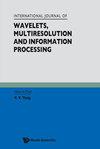A survey on agent learning architecture that adopts internet of things and wireless sensor networks
IF 0.8
4区 计算机科学
Q4 COMPUTER SCIENCE, SOFTWARE ENGINEERING
International Journal of Wavelets Multiresolution and Information Processing
Pub Date : 2020-12-18
DOI:10.1142/s0219691320300029
引用次数: 2
Abstract
Trustworthy and reliable applications built using intelligent software agents aim to provide improved performance using its characteristics. Agents introduced in various architectures represent its functionality as functional elements of the architecture and shows the interaction between other components present in the architecture. The Internet of things (IoT) reveals as a frequent technology that allows accessing the physical objects present in the world. IoT systems utilize wireless sensor network to transmit and receive data by establishing communication. Wireless Sensor Networks transmits digital signals to the cyber-world for analyzing and processing the information into useful data by either formulating or communicating with the intelligent and innovative system. While talking about IoT and WSN, agents introduced in such environments assist in making decisions quickly by perceiving the input from the environment. The number of agents needed for an application depends upon the complexity of the problem. Multi-Agent architectures discussed in the article describe their association, roles, functionality and interaction. This paper gives a detailed survey of various agent/multi-agent learning architectures introduced over IoT and WSN. Moreover, this survey with the performance and the SWOT analysis on the Agent-based learning architecture helps the reader and paves a way to pursue research on Agent-based architectural deployment over IoT and WSN paradigms.采用物联网和无线传感器网络的智能体学习体系结构综述
使用智能软件代理构建的可信和可靠的应用程序旨在利用其特性提供改进的性能。在各种体系结构中引入的代理将其功能表示为体系结构的功能元素,并显示体系结构中存在的其他组件之间的交互。物联网(IoT)显示为一种允许访问世界上存在的物理对象的常用技术。物联网系统利用无线传感器网络通过建立通信来传输和接收数据。无线传感器网络将数字信号传输到网络世界,通过制定或与智能和创新系统通信,将信息分析和处理成有用的数据。在谈论物联网和WSN时,在这种环境中引入的代理通过感知来自环境的输入来帮助快速做出决策。应用程序所需的代理数量取决于问题的复杂程度。文中讨论的多代理体系结构描述了它们的关联、角色、功能和交互。本文详细介绍了在物联网和WSN上引入的各种智能体/多智能体学习架构。此外,本文对基于agent的学习架构的性能和SWOT分析的调查有助于读者,并为在物联网和WSN范式上进行基于agent的架构部署的研究铺平了道路。
本文章由计算机程序翻译,如有差异,请以英文原文为准。
求助全文
约1分钟内获得全文
求助全文
来源期刊
CiteScore
2.60
自引率
7.10%
发文量
52
审稿时长
2.7 months
期刊介绍:
International Journal of Wavelets, Multiresolution and Information Processing (hereafter referred to as IJWMIP) is a bi-monthly publication for theoretical and applied papers on the current state-of-the-art results of wavelet analysis, multiresolution and information processing.
Papers related to the IJWMIP theme are especially solicited, including theories, methodologies, algorithms and emerging applications. Topics of interest of the IJWMIP include, but are not limited to:
1. Wavelets:
Wavelets and operator theory
Frame and applications
Time-frequency analysis and applications
Sparse representation and approximation
Sampling theory and compressive sensing
Wavelet based algorithms and applications
2. Multiresolution:
Multiresolution analysis
Multiscale approximation
Multiresolution image processing and signal processing
Multiresolution representations
Deep learning and neural networks
Machine learning theory, algorithms and applications
High dimensional data analysis
3. Information Processing:
Data sciences
Big data and applications
Information theory
Information systems and technology
Information security
Information learning and processing
Artificial intelligence and pattern recognition
Image/signal processing.

 求助内容:
求助内容: 应助结果提醒方式:
应助结果提醒方式:


